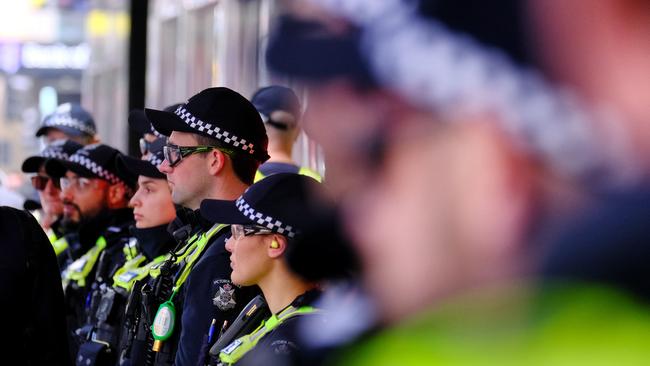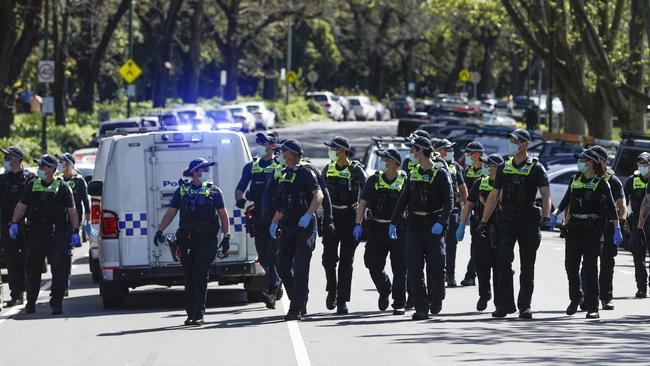Thousands of police shifts lost as officers sustain ‘mental health injuries’
Mental health injuries are contributing to a rise in lost shifts among Victoria Police employees.

Police & Courts
Don't miss out on the headlines from Police & Courts. Followed categories will be added to My News.
Nearly 140,000 Victoria Police shifts were lost last year in a surge in mental health injuries in the midst of Covid-19.
The number of lost shifts among all Victoria Police employees surged by 32 per cent in the past 12 months, new police data has found.
That figure represents 3.3 per cent of total shifts rostered across Victoria Police.
This rise has largely been attributed to injuries sustained by police during protests. Victoria Police played a frontline role in enforcing Covid restrictions and were involved in several violent clashes with protesters during anti-lockdown demonstrations.
“Mental-health injuries, including those resulting from exposure to traumatic events, were the cause of around three-quarters of lost shifts,” a spokesperson said.

“Sprains and strains, such as those sustained during an arrest or while restraining a suspect, contributed to about 10 per cent of shifts lost. There were also some Covid-related absences that resulted in shifts lost due to workplace injury.”
Victoria Police said it was committed to reducing the number of injuries sustained by employees in the workplace.
It noted that a range of mental-health and wellbeing services were provided to all Victoria Police employees.
This includes a team of internal welfare and mental professionals to provide wellbeing and post-critical incident support, chaplaincy support, resilience and trauma recovery groups, as well as wellbeing education and training programs.
The police spokesperson added: “We continuously review the data to identify trends and opportunities to improve the health and safety of our staff.
“When an injury occurs, we recognise it is important the employee takes the necessary time off to recover and is supported in their return to work.”




